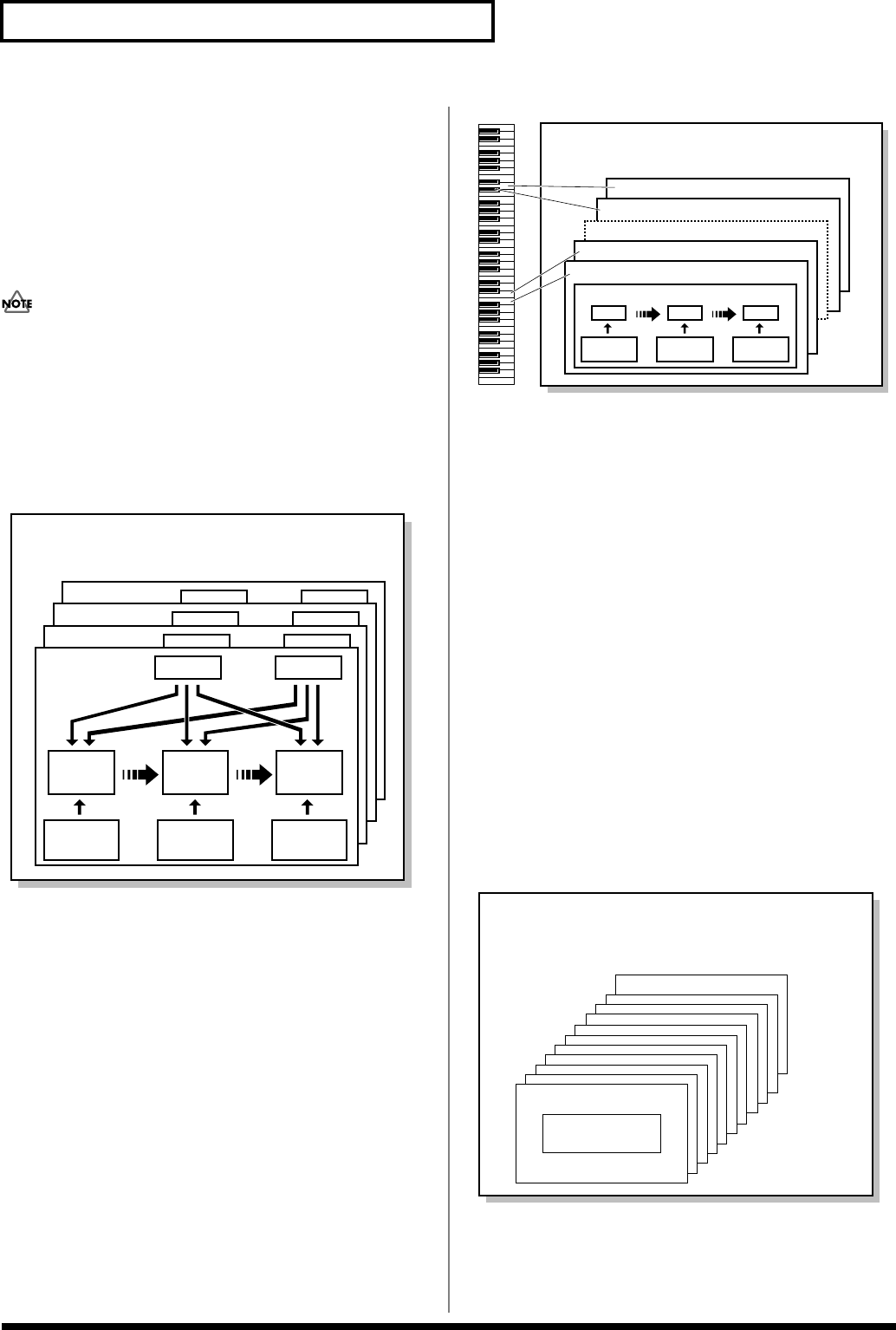
18
Overview of the Fantom-S
LFO (Low Frequency Oscillator)
Use the LFO to create cyclic changes (modulation) in a sound. The
Fantom-S has two LFOs. Either one or both can be applied to effect
the WG (pitch), TVF (filter) and/or TVA (volume). When an LFO is
applied to the WG pitch, a vibrato effect is produced. When an LFO
is applied to the TVF cutoff frequency, a wah effect is produced.
When an LFO is applied to the TVA volume, a tremolo effect is
produced.
LFO is not included in the rhythm tones (percussion instrument
sounds).
Patches
Patches are the basic sound configurations that you play during a
performance. Each patch can be configured by combining up to four
tones. How the four tones are combined is determined by the
Structure Type parameter (p. 46).
fig.01-03.e
Rhythm Sets
Rhythm sets are groups of a number of different percussion
instrument sounds. Since percussion instruments generally do not
play melodies, there is no need for a percussion instrument sound to
be able to play a scale on the keyboard. It is, however, more
important that as many percussion instruments as possible be
available to you at the same time. Therefore, each key (note number)
of a rhythm set will produce a different percussion instrument.
fig.01-04.e
Each percussion instrument consists of the following four elements.
(For details, refer to the explanations for “Tones.”)
WG (Wave Generator)
TVF (Time Variant Filter)
TVA (Time Variant Amplifier)
Envelope
Performances
A performance has a patch or rhythm set assigned to each of the 16
parts, and can simultaneously handle 16 sounds.
The Fantom-S has two screens: a Layer screen and a Mixer screen (p.
76).
Use the Layer screen if you want to play two or more patches
together (Layer) or play different patches in separate areas of the
keyboard (Split).
Use the Mixer screen if you want to “mix” by individually adjusting
the pan and level settings for each of the sixteen parts.
Because the Fantom sound generator can control multiple sounds
(instruments) it is called a Multi-timbral sound generator.
fig.01-05.e
Patch
Tone 4
Tone 3
Tone 2
Tone 1
WG
Pitch
Envelope
TVF
TVF
Envelope
TVA
Envelope
TVA
LFO 1 LFO 2
Note Number 98 (D7)
Note Number 97 (C#7)
Note Number 36 (C2)
Note Number 35 (B1)
Rhythm Tone (Percussion instrument sound)
Rhythm Set
WG
Pitch
Envelope
TVF
TVF
Envelope
TVA
Envelope
TVA
Performance
Part 16
Part 1
Patch/
Rhythm Set
Layer
Mixer
Reference_e.book 18 ページ 2003年7月14日 月曜日 午後3時25分


















